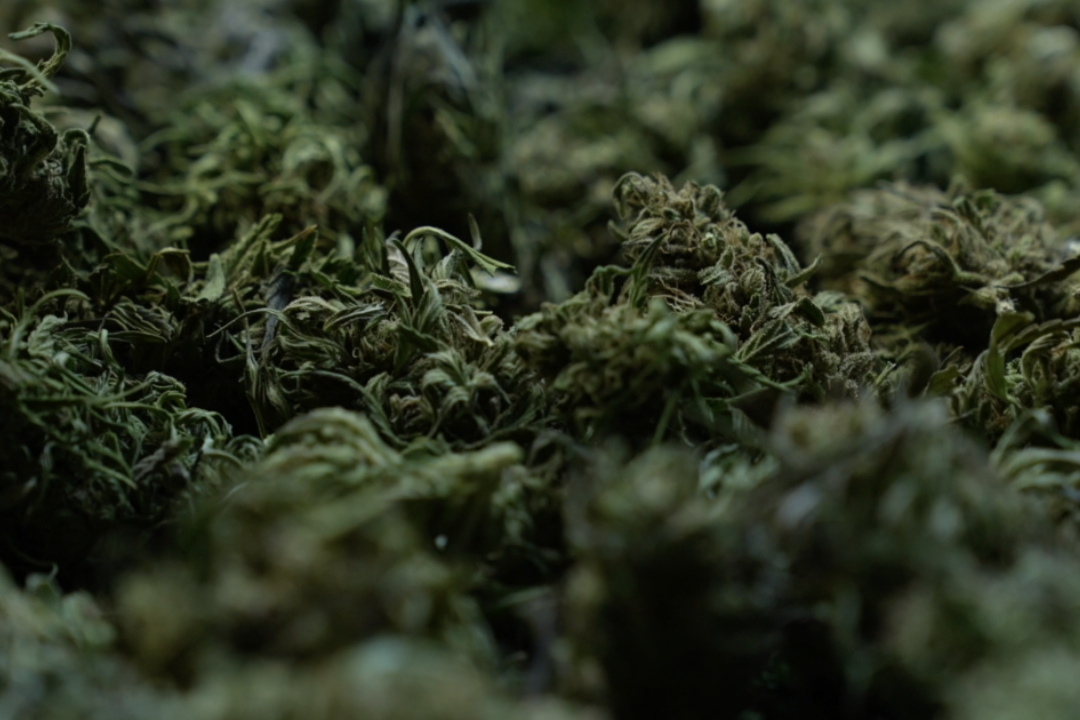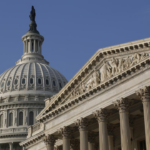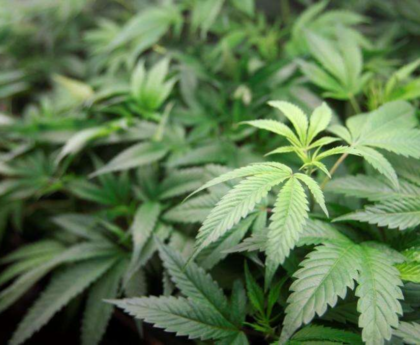LAS VEGAS (KTNV) – Green and always green. The Nevada marijuana business is on fire, but it still has what many views as dangerous flaws in the system.
13 Investigations examines the solution that some legislators are trying to introduce.
“It just makes the whole situation a little bit more, you could say nerve-wracking,” said Alex Myers.
Myers is a regular at Inyo Dispensary and like all customers, she has to pay for her cannabis with cash.
SIMILAR: Medical marijuana classification is discussed
“It’s inconvenient,” she said. “It’s very inconvenient. I have to pay an additional fee.”
That’s because most banks don’t handle marijuana money.
All of that cash leads to obvious security concerns, as 13 Investigates first reported in 2015 when the industry was still budding.
“I don’t like having to carry a large amount of cash with me,” Myers said. “Especially when I come to buy something like marijuana because it makes it a little more dangerous for me as a young woman.”
If it’s legal to buy marijuana in Nevada, what’s stopping banks from doing business with cannabis companies after all these years?
“Because it’s considered illegal money,” said Jim Lamb of the Las Vegas Medical Marijuana Association.
Illegal because, although marijuana is legal to buy and consume in any form in over 30 states, Washington, DC, and Guam, it is still a List 1 controlled substance in the eyes of federal agencies.
RELATED: Report: Marijuana Industry Popular During the Pandemic
Tyler Kimas is the executive director of the Nevada Cannabis Compliance Board.
“From the side of the regulatory enforcement. I mean, large cash transactions are the clear signature for money laundering,” said Klimas.
This is why cannabis companies face so many hurdles in managing their money.
“There are reports of suspicious activity,” said Lamb, “all other types of reports related to money laundering, etc. that need to be carried out, which makes it extremely expensive and also very risky for a banking institution to do.”
The Safe Banking Act would essentially take what was considered dirty money and label it clean by allowing banks to accept cannabis cash without one goal on their back: the fear of federal enforcement.
Darcy Spears: “If this passes, what exactly does it mean to you and how does it change things?”
David Goldwater: “This means that banks will no longer be penalized for dealing with cannabis deals.”
David Goldwater owns Inyo Dispensary and has been saying for years that it doesn’t make sense.
“I think we’ll all look back in five years and look at what we’ve been up to during that time and just laugh,” he said.
He says banks wouldn’t accept cannabis cash, but someone else would.
“The same dollar I make selling a cannabis product is the exact same dollar I pay the Tax Department, but I can’t write a check to them,” Goldwater explained. “That’s exactly the same dollar they take from Bank of America and deposit on behalf of the state’s tax collection.”
All of this suggests why Goldwater says it is high time pharmacies were viewed like any other legitimate business.
“The bottom line is hopefully we can open bank accounts and borrow,” said Goldwater.
What he says will solve many fundamental problems.
“That means we won’t be carrying large amounts of cash with us. We don’t have to pay extra staff to handle the cash. Our customers will feel more secure. Our salespeople will feel more secure. “
A change in the law would also make life easier for workers. Right now, it is difficult for the entire workforce in the cannabis industry to get basic things like applying for a car loan or buying a home.
“So we can pay our employees the normal way with direct deposits and they won’t have any problems,” said Goldwater.
Speaking to employers like Goldwater, Klimas of the CCB said, “If they have traditional banking services or do banking with someone, we now have that extra look at these books, and these tests of the standard lift a mark and allow us to further test these books.”
And for banks, it opens doors to a new world of customers.
“The legalization of cannabis has created a huge market,” said Phyllis Gurgevich of the Nevada Bankers Association.
“It’s a market with great growth potential,” said Gurgevich. “So there are a lot of dollars here. And having those in the banking system just supports more economic growth.”
Customers like Myers simply want everything from a single source.
“I can go to any other store and pay with my card as usual and don’t have to worry about withdrawing from the ATM,” said Myers. “And then I come to a pharmacy and don’t get the same privilege. So I don’t think it’s very fair.”
The Safe Banking Act was passed in the House of Representatives in April. Most recently, it was referred to the Senate Committee on Banking, Housing, and Urban Development.
All Nevada federal lawmakers support the Safe Banking Act, which shows that it is approved by both parties.
Sen. Catherine Cortez Masto’s office made the following statement:
“This bipartisan SAFE Banking Act is critical to Nevada’s legal marijuana business and economy, and will also help us protect our communities from money laundering and other crimes. When business owners do not have access to banks, relying on cash creates security risks and can force them to lose small business loans or access to capital to grow their businesses. We need an inclusive banking system that works for Nevada, and this common-sense legislation is going to make a big difference. ”
Senator Jacky Rosen sent the following statement:
“A lack of access to banking services has hampered legal marijuana businesses in our state and increased the risk to public safety in our communities. Federal law restricts banks from providing their services to marijuana companies, forcing most of those companies to conduct their businesses only in cash, opening the door to increasing crimes like theft and robbery. I am proud to co-sponsor this bipartisan legislation that gives Nevada marijuana companies the same access to financial institutions as any other legal business working to support Nevada’s industries with forward-looking solutions to the problems that affect them. ”
Rep. Steven Horsford made the following comments when HR was passed in House in 1996:
“The current misregistration of state and federal cannabis banking laws has forced legal cannabis companies to operate only on a cash basis, putting public safety at risk and increasing the risk of financial fraud,” said Congressman Steven Horsford. “Since medical cannabis doctor was approved for the sale of cannabis in Nevada, my office has heard from countless small business owners of the need for the SAFE Banking Act. I was happy to vote for this important, bipartisan bill, and I hope the Senate will act swiftly to get it passed “the SAFE Banking Act by Congress.”
Rep. Mark Amodei made the following statement:
“While current federal law forces legal cannabis companies to operate on a cash basis, there isn’t the same federal implications for cities, counties, and states that want to put cash from legal cannabis transactions into the federal banking system, and local governments can with all of that Cash they want shows up at the bank – and no questions are asked. In my opinion, the height of the hypocrisy for the federal government to accept taxpayers’ money from cannabis companies in Nevada while they are still being given access to the Banking system denied. Additionally, businesses are being forced to operate entirely on a cash basis, not only making businesses easy targets for criminal activity but also preventing the proper enforcement of billions in revenue for regulatory compliance purposes. .
By giving state-licensed cannabis companies access to the federal banking system, this legislation will protect public safety while allowing law enforcement and financial regulators to properly monitor legal cannabis transactions. “
Rep. Dina Titus made the following comments:
“All over Nevada, legal companies serving the cannabis industry are excluded from the banking system. These outdated rules create safety concerns and make it difficult for cannabis companies to hire more people. I voted for the SAFE Banking Act to be passed to improve federal finance laws into the 21st century. Our state is proof that the era of marijuana bans is over. It is time for the federal government to act. ”
Rep. Susie Lee posted this on Twitter:
“The conflict between state and state law means legitimate businesses are forced to operate on a cash-only basis, which poses a serious public safety risk and opens up opportunities for tax evasion and money laundering.
That’s why I proudly voted for the #SAFEBanking Act to be passed. “





